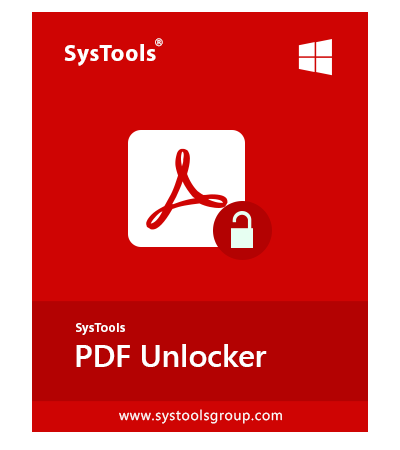:max_bytes(150000):strip_icc()/most-expensive-apps-on-itunes-3486326-acea86da615d4dbba558b30b15706dee.png)
"2024 Approved From Playground to Pro How Mavic Air Challenges the Spark Dominance"

From Playground to Pro: How Mavic Air Challenges the Spark Dominance
[Infographic] DJI Mavic Air vs. DJI Spark - A Gamer Changer Again?

Max Wales
Mar 27, 2024• Proven solutions
Drone photography has hit the big time, with over 670,000 drones being registered with the federal government in the last year alone. The FAA predicts that by the year 2020, a massive seven million drones could be sold in the U.S. alone; that’s about two and a half times the entire population of Nevada!
When it comes to buying a drone, the undisputed drone king right now is, without a doubt, Chinese company DJI . Having achieved amazing success with the highly portable Mavic Pro in 2016, and with the pocket rocket DJI Spark last year, the world held its breath to see what was coming next.
What did come next was something truly amazing; perhaps a real game changer. Neatly squeezing in the middle of their two highly successful products came the brand-new Mavic Air; a quadcopter that is highly portable, incredibly powerful and, dare we say it, a little bit sexier than its predecessors. But does it live up to the promise, and how does it compare with the amazingly popular, entry level DJI Spark?
If you’re looking for easy portability, the DJI Spark is smaller and lighter but can’t be folded. When you collapse the arms on the Mavic Air, it’s compact and easy to stow, making it far more transportable than many of its predecessors.
If performance is key for you, it’s crucial to know that the Mavic Air will offer you a longer flight time by a substantial five minutes and is also faster by around 18.4km per hour, compared to the Spark. In addition to this, the range of the Mavic Air is a massive 50 per cent further than the Spark, at a huge 4km compared to 2km.
In terms of photographic capabilities, both drones offer some pretty good specs. However, the DJI Mavic Air outpaces the smaller Spark in terms of image quality, topping out at 100mbps compared to 24mbps and recording in up to 4K definition at 12MP. The Spark is configured to run at 1080p only. Both models offer obstacle avoidance and have numerous features, but on almost every specification, the Mavic Air seems to do just a little bit better.
So, is the more expensive DJI Mavic Air really worth the extra investment? With a price tag in the region of $400 to $700 more than that of the Spark packages, it’s a question well worth considering. Take a look at our full comparison infographic below, and let us know what you think.


Max Wales
Max Wales is a writer and a lover of all things video.
Follow @Max Wales
Max Wales
Mar 27, 2024• Proven solutions
Drone photography has hit the big time, with over 670,000 drones being registered with the federal government in the last year alone. The FAA predicts that by the year 2020, a massive seven million drones could be sold in the U.S. alone; that’s about two and a half times the entire population of Nevada!
When it comes to buying a drone, the undisputed drone king right now is, without a doubt, Chinese company DJI . Having achieved amazing success with the highly portable Mavic Pro in 2016, and with the pocket rocket DJI Spark last year, the world held its breath to see what was coming next.
What did come next was something truly amazing; perhaps a real game changer. Neatly squeezing in the middle of their two highly successful products came the brand-new Mavic Air; a quadcopter that is highly portable, incredibly powerful and, dare we say it, a little bit sexier than its predecessors. But does it live up to the promise, and how does it compare with the amazingly popular, entry level DJI Spark?
If you’re looking for easy portability, the DJI Spark is smaller and lighter but can’t be folded. When you collapse the arms on the Mavic Air, it’s compact and easy to stow, making it far more transportable than many of its predecessors.
If performance is key for you, it’s crucial to know that the Mavic Air will offer you a longer flight time by a substantial five minutes and is also faster by around 18.4km per hour, compared to the Spark. In addition to this, the range of the Mavic Air is a massive 50 per cent further than the Spark, at a huge 4km compared to 2km.
In terms of photographic capabilities, both drones offer some pretty good specs. However, the DJI Mavic Air outpaces the smaller Spark in terms of image quality, topping out at 100mbps compared to 24mbps and recording in up to 4K definition at 12MP. The Spark is configured to run at 1080p only. Both models offer obstacle avoidance and have numerous features, but on almost every specification, the Mavic Air seems to do just a little bit better.
So, is the more expensive DJI Mavic Air really worth the extra investment? With a price tag in the region of $400 to $700 more than that of the Spark packages, it’s a question well worth considering. Take a look at our full comparison infographic below, and let us know what you think.


Max Wales
Max Wales is a writer and a lover of all things video.
Follow @Max Wales
Max Wales
Mar 27, 2024• Proven solutions
Drone photography has hit the big time, with over 670,000 drones being registered with the federal government in the last year alone. The FAA predicts that by the year 2020, a massive seven million drones could be sold in the U.S. alone; that’s about two and a half times the entire population of Nevada!
When it comes to buying a drone, the undisputed drone king right now is, without a doubt, Chinese company DJI . Having achieved amazing success with the highly portable Mavic Pro in 2016, and with the pocket rocket DJI Spark last year, the world held its breath to see what was coming next.
What did come next was something truly amazing; perhaps a real game changer. Neatly squeezing in the middle of their two highly successful products came the brand-new Mavic Air; a quadcopter that is highly portable, incredibly powerful and, dare we say it, a little bit sexier than its predecessors. But does it live up to the promise, and how does it compare with the amazingly popular, entry level DJI Spark?
If you’re looking for easy portability, the DJI Spark is smaller and lighter but can’t be folded. When you collapse the arms on the Mavic Air, it’s compact and easy to stow, making it far more transportable than many of its predecessors.
If performance is key for you, it’s crucial to know that the Mavic Air will offer you a longer flight time by a substantial five minutes and is also faster by around 18.4km per hour, compared to the Spark. In addition to this, the range of the Mavic Air is a massive 50 per cent further than the Spark, at a huge 4km compared to 2km.
In terms of photographic capabilities, both drones offer some pretty good specs. However, the DJI Mavic Air outpaces the smaller Spark in terms of image quality, topping out at 100mbps compared to 24mbps and recording in up to 4K definition at 12MP. The Spark is configured to run at 1080p only. Both models offer obstacle avoidance and have numerous features, but on almost every specification, the Mavic Air seems to do just a little bit better.
So, is the more expensive DJI Mavic Air really worth the extra investment? With a price tag in the region of $400 to $700 more than that of the Spark packages, it’s a question well worth considering. Take a look at our full comparison infographic below, and let us know what you think.


Max Wales
Max Wales is a writer and a lover of all things video.
Follow @Max Wales
Max Wales
Mar 27, 2024• Proven solutions
Drone photography has hit the big time, with over 670,000 drones being registered with the federal government in the last year alone. The FAA predicts that by the year 2020, a massive seven million drones could be sold in the U.S. alone; that’s about two and a half times the entire population of Nevada!
When it comes to buying a drone, the undisputed drone king right now is, without a doubt, Chinese company DJI . Having achieved amazing success with the highly portable Mavic Pro in 2016, and with the pocket rocket DJI Spark last year, the world held its breath to see what was coming next.
What did come next was something truly amazing; perhaps a real game changer. Neatly squeezing in the middle of their two highly successful products came the brand-new Mavic Air; a quadcopter that is highly portable, incredibly powerful and, dare we say it, a little bit sexier than its predecessors. But does it live up to the promise, and how does it compare with the amazingly popular, entry level DJI Spark?
If you’re looking for easy portability, the DJI Spark is smaller and lighter but can’t be folded. When you collapse the arms on the Mavic Air, it’s compact and easy to stow, making it far more transportable than many of its predecessors.
If performance is key for you, it’s crucial to know that the Mavic Air will offer you a longer flight time by a substantial five minutes and is also faster by around 18.4km per hour, compared to the Spark. In addition to this, the range of the Mavic Air is a massive 50 per cent further than the Spark, at a huge 4km compared to 2km.
In terms of photographic capabilities, both drones offer some pretty good specs. However, the DJI Mavic Air outpaces the smaller Spark in terms of image quality, topping out at 100mbps compared to 24mbps and recording in up to 4K definition at 12MP. The Spark is configured to run at 1080p only. Both models offer obstacle avoidance and have numerous features, but on almost every specification, the Mavic Air seems to do just a little bit better.
So, is the more expensive DJI Mavic Air really worth the extra investment? With a price tag in the region of $400 to $700 more than that of the Spark packages, it’s a question well worth considering. Take a look at our full comparison infographic below, and let us know what you think.


Max Wales
Max Wales is a writer and a lover of all things video.
Follow @Max Wales
- Title: 2024 Approved From Playground to Pro How Mavic Air Challenges the Spark Dominance
- Author: Jeffrey
- Created at : 2024-08-21 07:46:12
- Updated at : 2024-08-22 07:46:12
- Link: https://some-knowledge.techidaily.com/2024-approved-from-playground-to-pro-how-mavic-air-challenges-the-spark-dominance/
- License: This work is licensed under CC BY-NC-SA 4.0.


